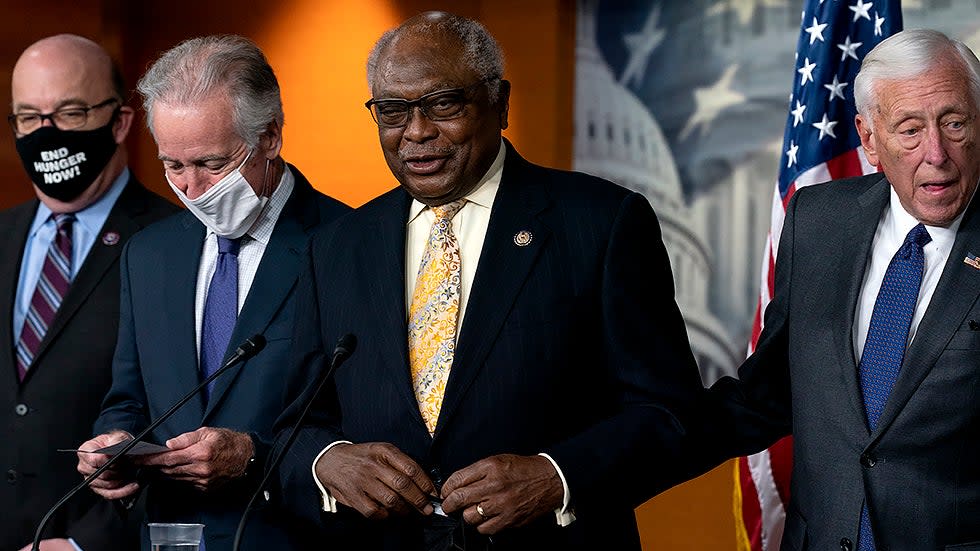Congressional panel widens investigation into pandemic aid fraud

- Oops!Something went wrong.Please try again later.
A congressional subcommittee investigating financial fraud during the pandemic widened the scope of its investigation on Tuesday to include two of the leading processors of COVID-19-related financial assistance.
Rep. James Clyburn (D-S.C.), who chairs the Select Subcommittee on the Coronavirus Crisis, expanded the committee's investigation into fraud in the Paycheck Protection Program (PPP) to include Blue Acorn PPP, LLC and Womply, Inc., two online startups that processed a third of all PPP loans this year, according to a statement.
"I am deeply troubled by reports alleging that financial technology (FinTech) lenders and their bank partners failed to adequately screen PPP loan applications for fraud," Clyburn said in a letter to each company. "This failure may have led to millions of dollars worth of FinTech-facilitated PPP loans being made to fraudulent, non-existent, or otherwise ineligible businesses."
He requested documentation necessary to "understand whether your company appropriately implemented all necessary fraud and financial crime prevention controls while facilitating PPP loans."
Together, the two companies surpassed the totals of any of their direct competitors by bringing in more than $3 billion in fees since COVID-19 began spreading last year, according to USA Today. They did so with little to no prior experience: Before the pandemic, Womply had never facilitated loans, and Blue Acorn did not exist.
Blue Acorn is cooperating with the inquiry, a company spokesperson confirmed to The Hill.
"As we reviewed increasing volumes of loan applications, we learned, adapted, and enhanced our fraud detection capabilities and protocols," the spokesperson also told The Hill, adding that the company had worked "to ensure the integrity of the PPP while providing a traditionally overlooked population with access to the funds they needed and deserved."
Neither startup is a bank itself. Instead, they each work with struggling businesses to quickly approve loans with partner banks. They then profit off of a fee paid by the government for facilitating the loans, USA Today reported.
Clyburn's expansion of the probe followed information from the University of Texas at Austin's McCombs School of Business that indicated possible widespread fraud from the companies.
The Select Subcommittee's investigation will continue after findings earlier this year showed that the Trump administration had inadequate safeguards in place and failed to "prevent waste, fraud and abuse in pandemic relief programs," causing almost $84 billion in possibly fraudulent loans, the statement added.
The Hill has reached out to Womply for comment.
Updated at 1:06 p.m.

